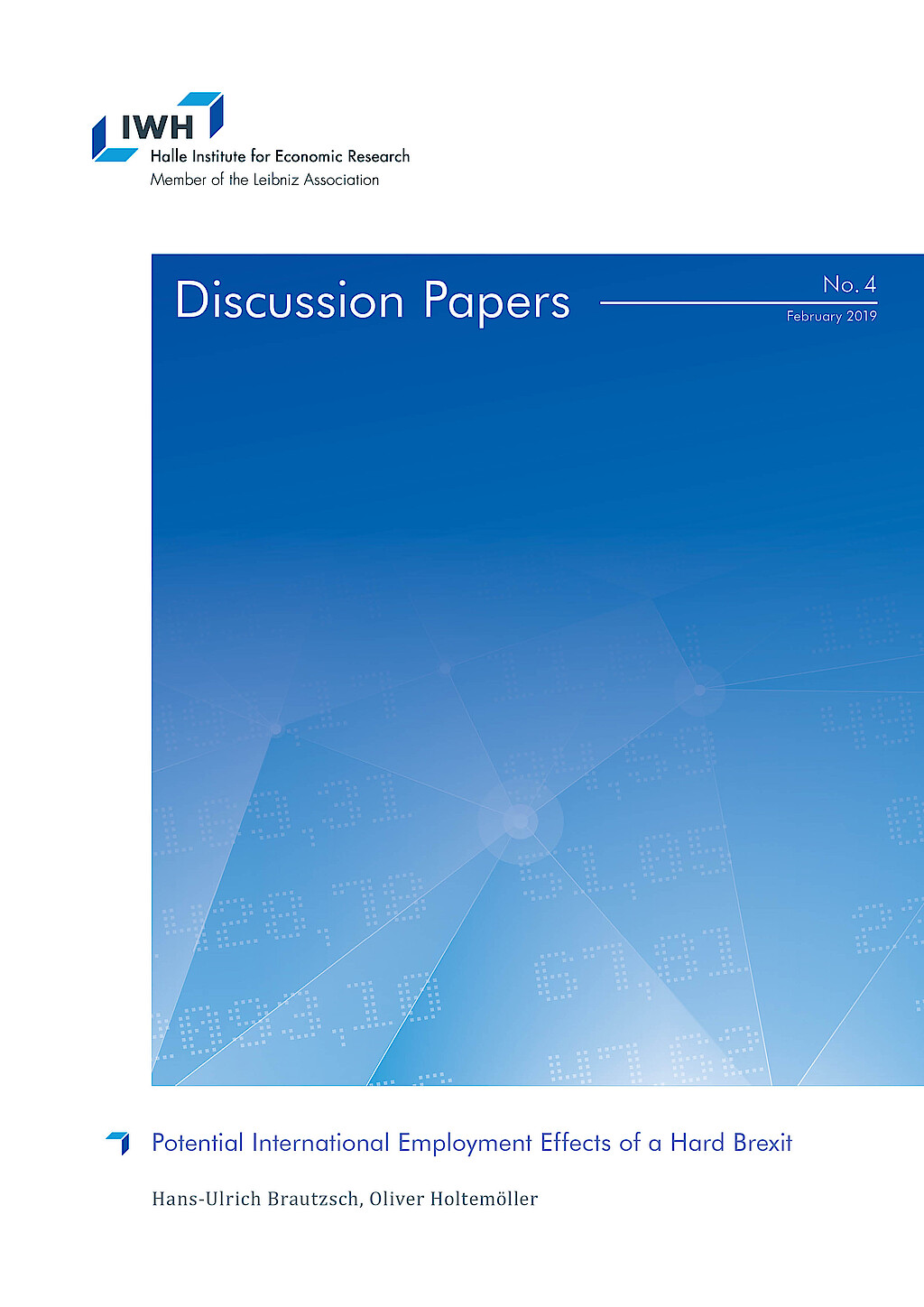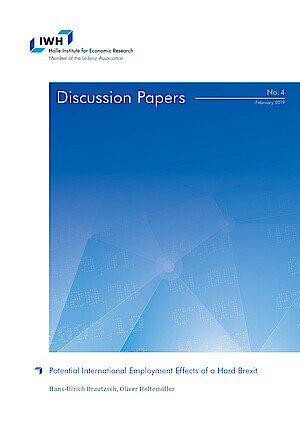No-deal Brexit would hit the German labour market particularly hard
A disorderly withdrawal of the United Kingdom from the European Union (EU) would impact many of the world's economies. As a recent study by the Halle Institute for Economic Research (IWH) based on data for 43 countries shows, a total of more than 600,000 jobs could suffer the consequences of a hard Brexit. In absolute numbers Germany would be hit the hardest, with more than 100,000 jobs affected, followed by China (just under 60,000) and France (around 50,000) as well as Poland and Italy (around 46,000 jobs each). The shortage of skilled labour in many developed economies suggests that companies may try to keep their staff by, for example, reducing working hours or opening up new markets.
A hard Brexit would disrupt global value chains
In their study, the IWH economists gave a detailed breakdown of (a) which industries would be affected in (b) which countries and (c) what consequences this would have for the respective labour markets. All calculations are based on the assumption that demand for EU goods and services in the UK will fall by a quarter after a hard Brexit, without British demand for goods from other regions increasing. This is due to higher prices, since imports from the remaining EU countries would become more expensive because of new tariffs. Within the then smaller European Union, almost 180,000 jobs could be affected in companies that supply their products directly to the UK. Suppliers based outside the EU are also affected because of global supply chains. This explains why countries like China are so deeply affected. Sectorally, services, agriculture, the metal and IT industries will be most affected.
“A hard Brexit would disrupt global value chains,” says study author Oliver Holtemöller, Vice President and Head of the Macroeconomics Department at IWH. “This is why Britain’s disorderly withdrawal from the EU has the potential to cause a significant loss of wealth. From an economic perspective it is crucial that a deal can still be reached.”
The IWH researchers also investigated the effects on the 401 German administrative districts. In Germany, a hard Brexit would particularly affect the car industry and, as a result, the districts of Wolfsburg (Volkswagen headquarters) and Dingolfing-Landau (BMW). A total of 15,000 employees in the German automotive industry (production and trade) could be affected by the decline in sales.
The IWH calculations are based on figures from the World Input Output Database (WIOD). This study was motivated by the Brexit vote of the British Parliament on 15 January 2019. It rejected the withdrawal agreement Prime Minister May had negotiated with the EU. The vote has increased the probability of Britain’s dis¬orderly withdrawal from the EU.
Whom to contact
For Researchers

Vice President Department Head
If you have any further questions please contact me.
+49 345 7753-800 Request per E-MailFor Journalists

Internal and External Communications
If you have any further questions please contact me.
+49 345 7753-832 Request per E-MailIWH list of experts
The IWH list of experts provides an overview of IWH research topics and the researchers and scientists in these areas. The relevant experts for the topics listed there can be reached for questions as usual through the IWH Press Office.
Related Publications

Potential International Employment Effects of a Hard Brexit
in: IWH Discussion Papers,
4,
2019
published in: Journal of Economic Structures
Abstract
We use the World Input Output Database (WIOD) to estimate the potential employment effects of a hard Brexit in 43 countries. In line with other studies we assume that imports from the European Union (EU) to the UK will decline by 25% after a hard Brexit. The absolute effects are largest in big EU countries which have close trade relationships with the UK like Germany and France. However, there are also large countries outside the EU which are heavily affected via global value chains like China, for example. The relative effects (in percent of total employment) are largest in Malta and Ireland. UK employment will also be affected via intermediate input production. Within Germany, the motor vehicle industry and in particular the “Autostadt” Wolfsburg are most affected.




